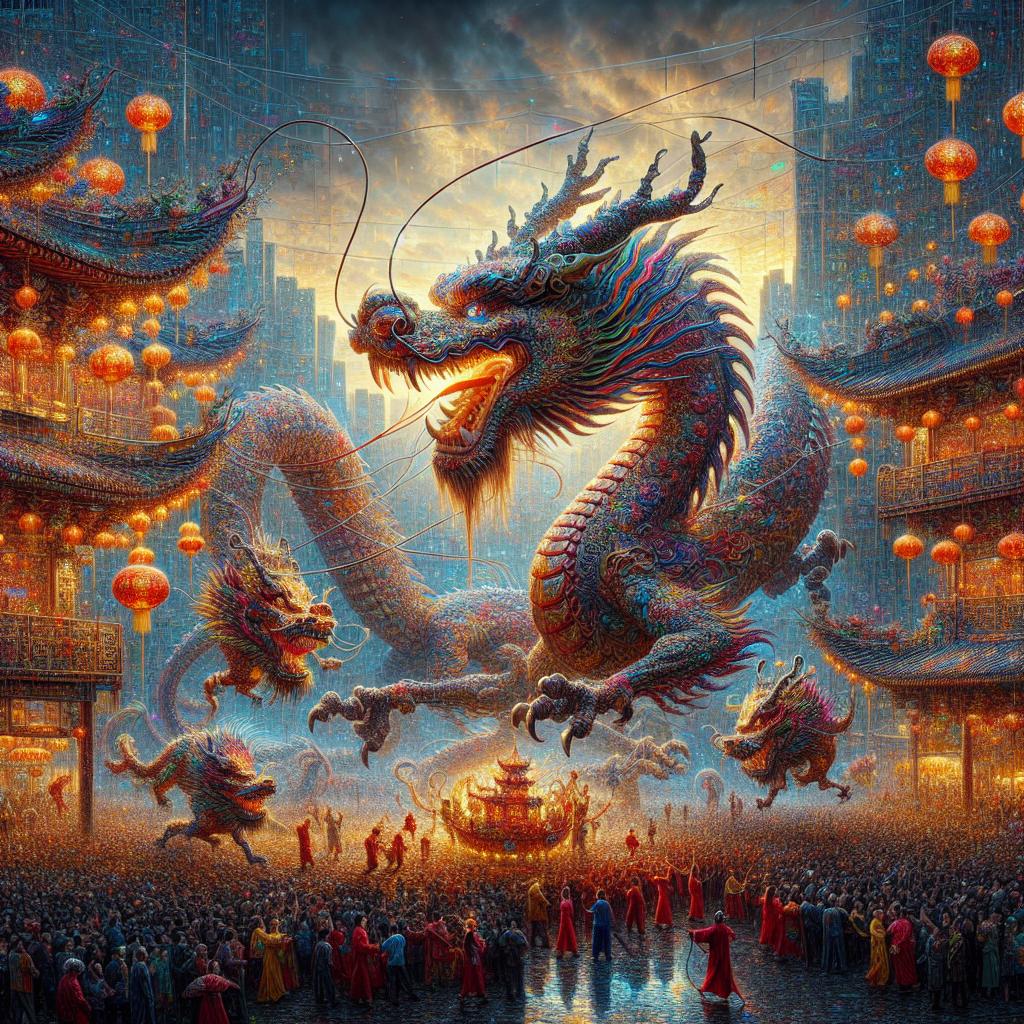
Divine Revelations: Embracing the Chinese New Year Dragon in Christian Faith
Published: 31 May 2024
Chinese New Year Dragon
Chinese New Year is a widely celebrated holiday that holds great cultural significance for the Chinese people and those around the world who observe it. One of the most recognizable symbols of Chinese New Year is the dragon. In this article, we will explore the origins and symbolism of the Chinese New Year dragon, as well as address common questions and misconceptions surrounding this mythical creature.
1. What is the significance of the dragon in Chinese culture?
The dragon holds a special place in Chinese culture and mythology. It is considered a symbol of power, strength, and good luck. The Chinese believe that dragons bring prosperity and fortune, which is why the Year of the Dragon is highly anticipated and celebrated. The dragon is also associated with the emperor in Chinese history, representing imperial authority and divine protection. It is often depicted in traditional Chinese art, architecture, and celebrations.
2. Is there a connection between dragons and dinosaurs?
While dragons are often portrayed as mythical creatures, there is evidence to suggest that they may have been inspired by real animals. Many cultures around the world have stories and legends about dragons, and some of these descriptions bear a striking resemblance to dinosaurs. In fact, some believe that ancient humans may have encountered dinosaurs and incorporated them into their folklore.
3. How did dragons become associated with Chinese New Year?
The association between dragons and Chinese New Year dates back centuries. The dragon is one of the twelve animals in the Chinese zodiac, which follows a twelve-year cycle. Each year is assigned an animal, and people born in that year are believed to possess certain characteristics associated with that animal. The Year of the Dragon is considered particularly auspicious, as it is believed to bring good luck and success.
4. Are dragons mentioned in the Bible?
While the Bible does mention creatures referred to as "dragons," it is important to understand that these references are not the same as the mythical dragons often depicted in folklore. In the Bible, dragons are mentioned as powerful and fearsome creatures, but they are not portrayed as magical or fire-breathing. The biblical references to dragons are often symbolic, representing chaos, evil, or the enemies of God's people.
5. Are dragons real creatures?
Dragons, as commonly depicted in mythology, are not real creatures. However, it is possible that ancient cultures may have encountered animals that inspired their dragon legends. Fossil evidence shows that dinosaurs existed millions of years ago, and some believe that these ancient reptiles may have influenced the mythical dragon stories found in various cultures.
6. Can Christians celebrate Chinese New Year?
The celebration of Chinese New Year can be a cultural and community event that Christians can participate in without compromising their faith. However, it is important for Christians to approach such celebrations with discernment and wisdom. While participating in cultural traditions and festivities, it is crucial to remember our ultimate allegiance to God and ensure that our actions align with biblical principles.
7. How can Christians engage with Chinese New Year?
Chinese New Year provides a unique opportunity for Christians to engage with their Chinese friends, neighbors, and coworkers. By showing an interest in their culture and traditions, Christians can build bridges and open doors for meaningful conversations about faith. It is important to approach these conversations with love, respect, and a genuine desire to understand and share the gospel.
8. What can we learn from the symbolism of the dragon in Chinese New Year?
The symbolism of the dragon in Chinese New Year teaches us several lessons. First, it reminds us of the importance of culture and tradition in shaping our identities and communities. Second, it highlights the human fascination with mythical creatures and our innate desire for power and good fortune. Lastly, it serves as a reminder that true power and blessings come from God alone, and our ultimate hope should be in Him rather than in worldly symbols or superstitions.
In conclusion, the Chinese New Year dragon holds great cultural significance and symbolism in Chinese tradition. While dragons are often portrayed as mythical creatures, there is evidence to suggest that they may have been inspired by real animals such as dinosaurs. As Christians, we can engage with Chinese New Year festivities and use them as opportunities to share the gospel and build relationships with our Chinese friends and neighbors. Ultimately, we must remember that our true source of power and blessings is found in God alone.
